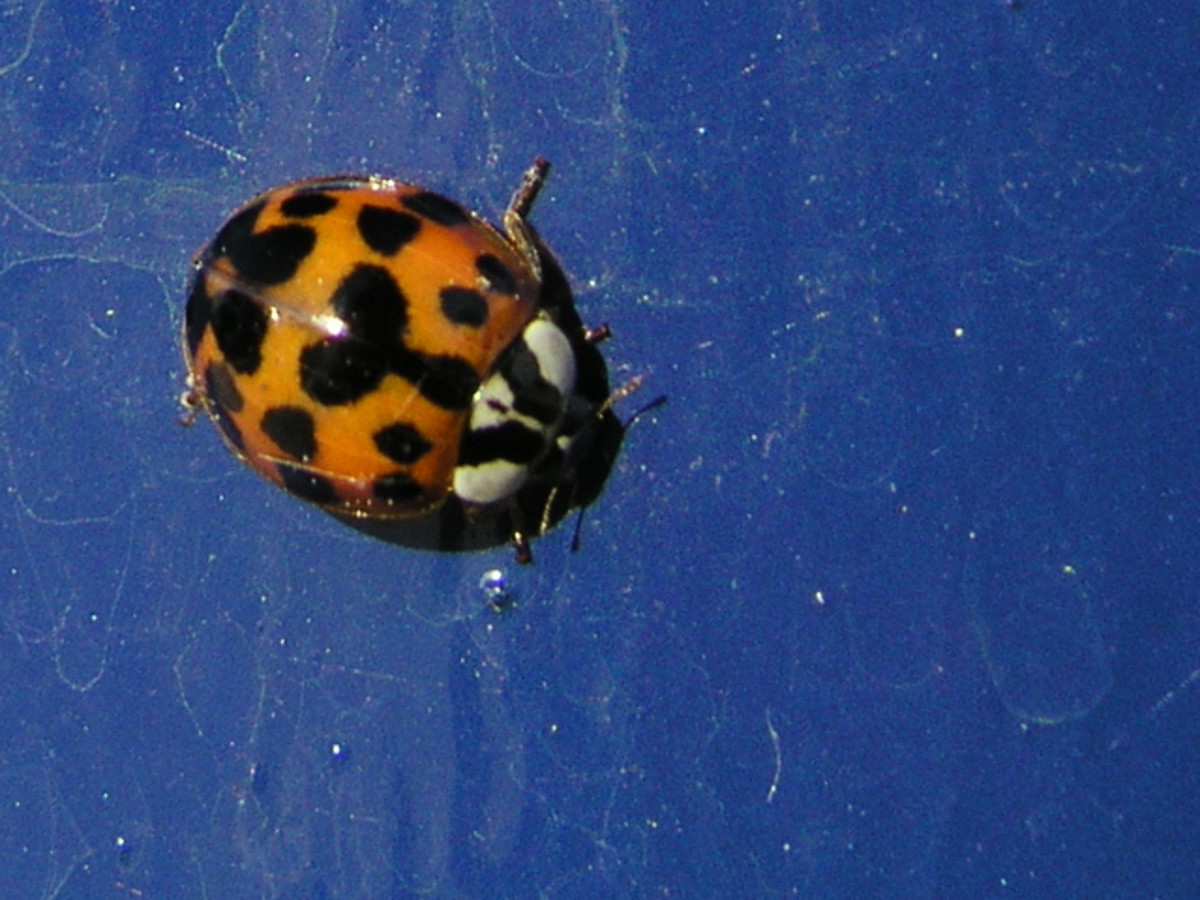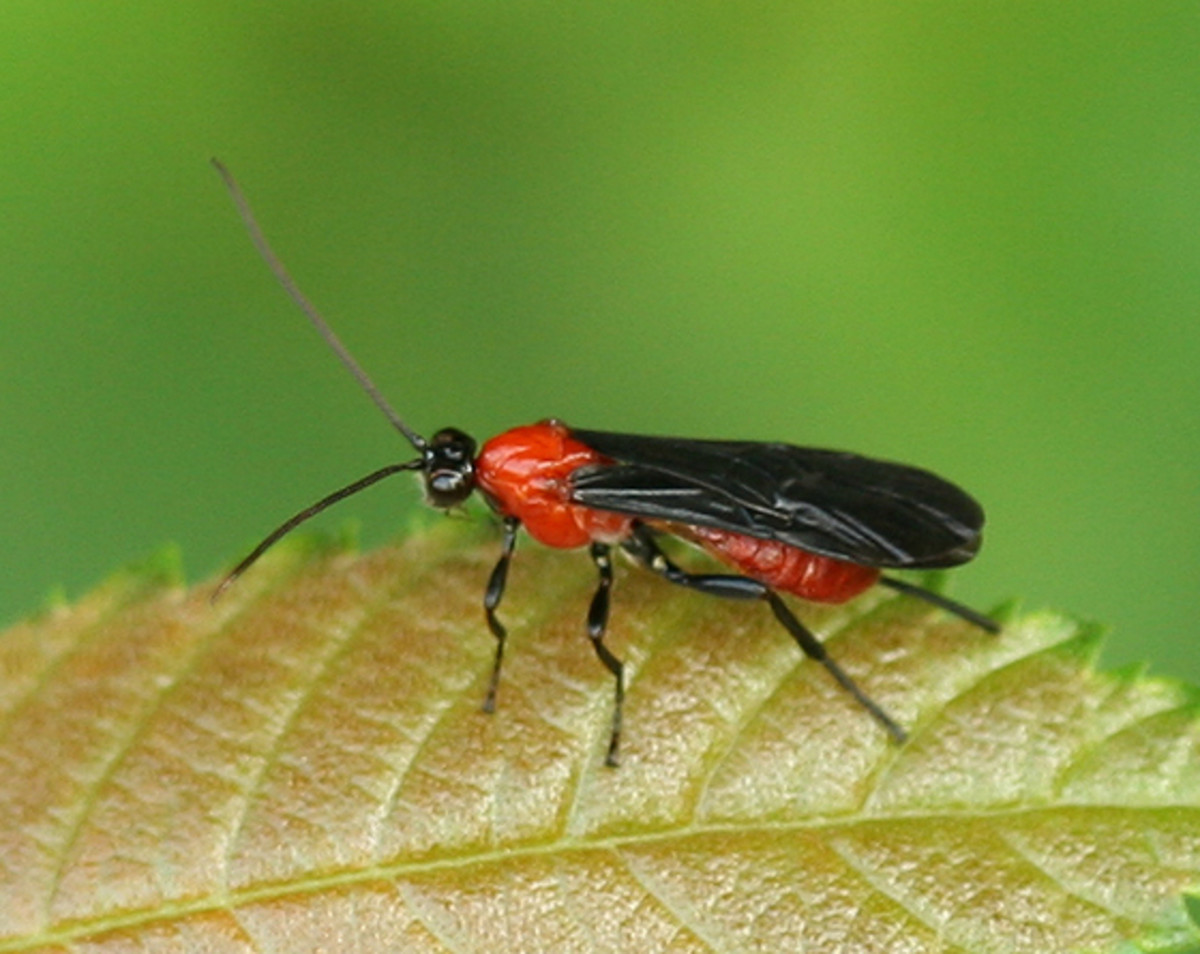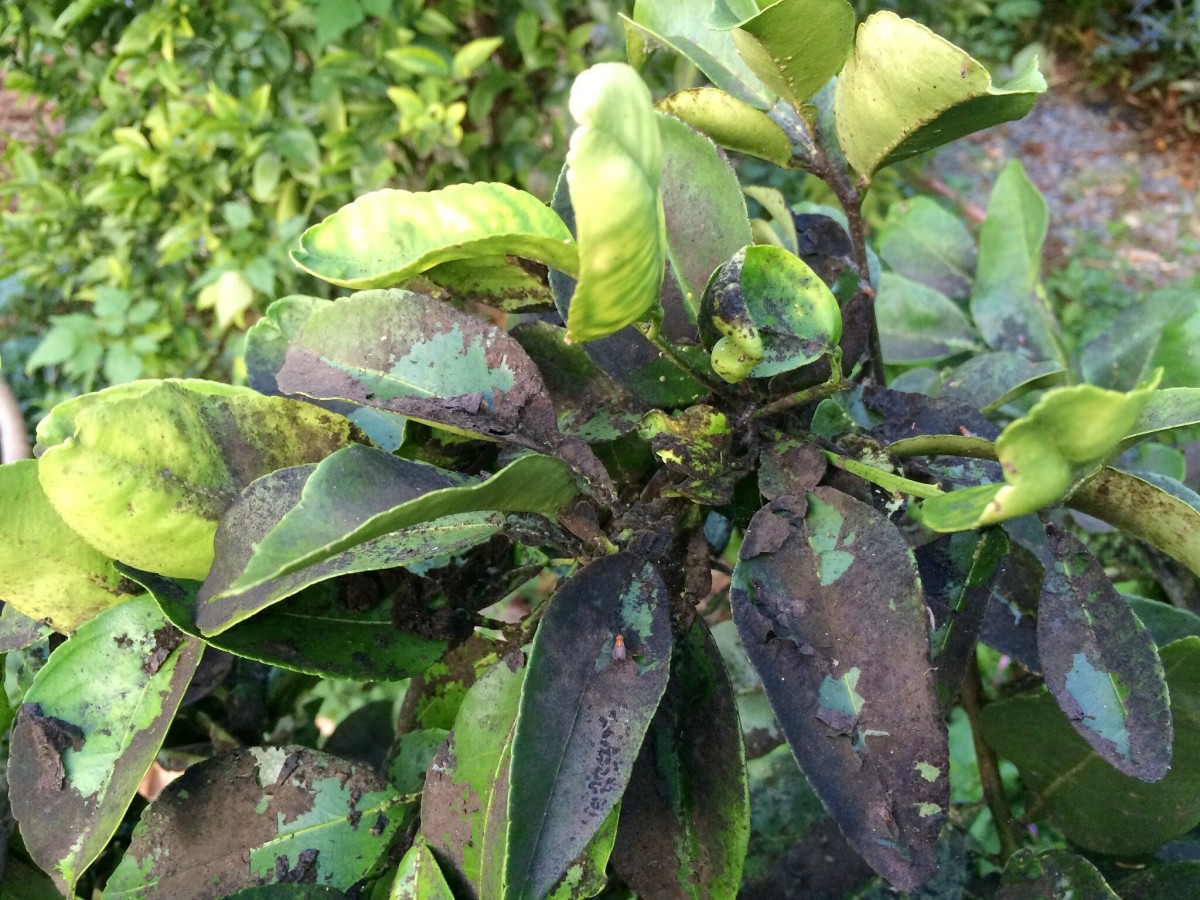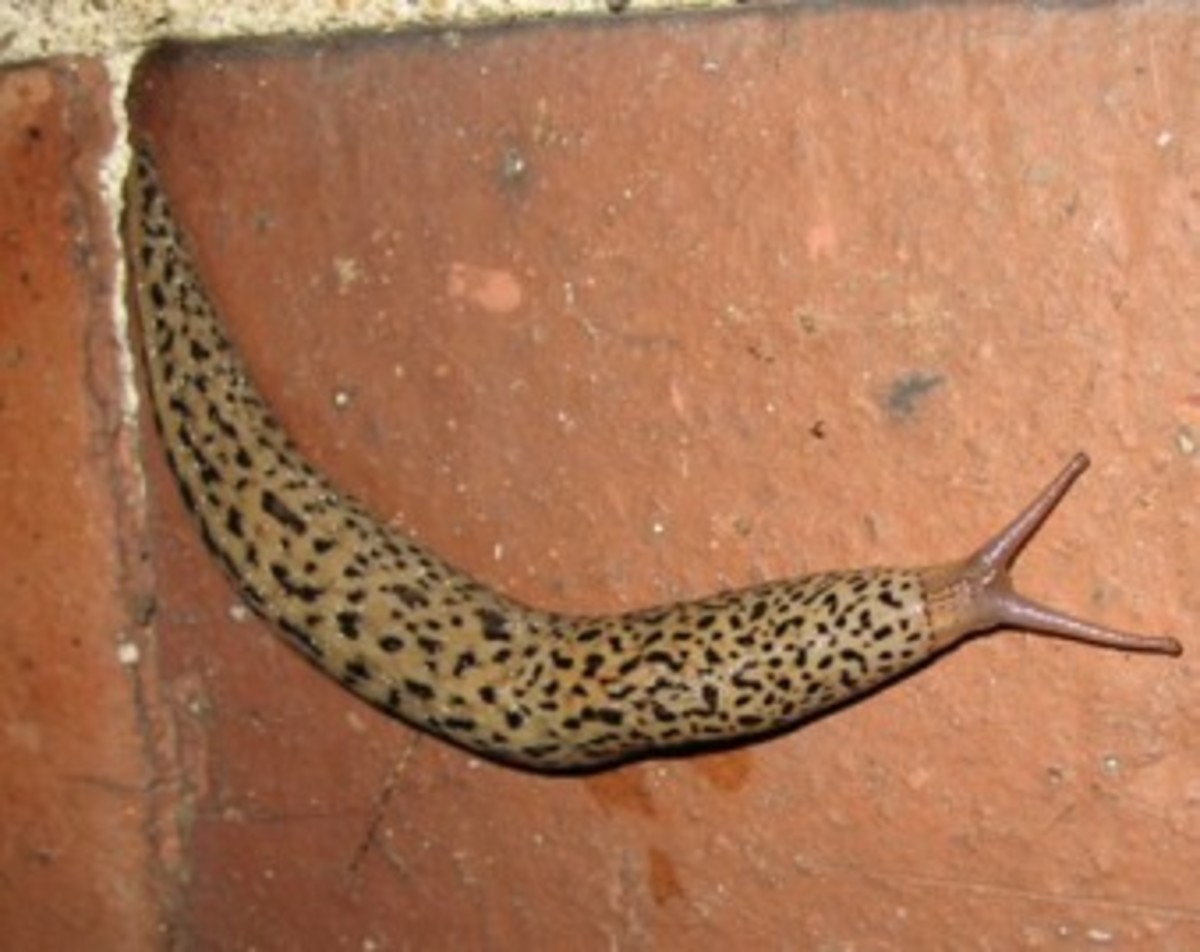The Invasion of the Harlequin Ladybird (Ladybug)
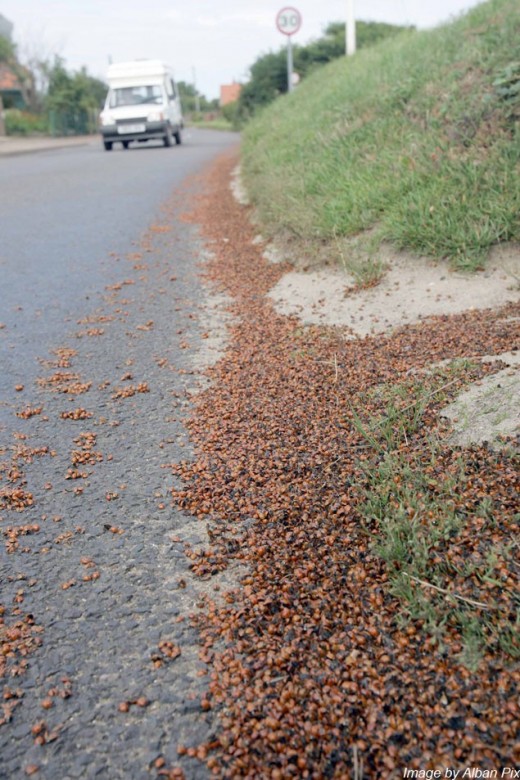
Origin of the Harlequin Ladybird
The Harlequin Ladybird (Harmonia axyridis), otherwise known as the Multi-Coloured Ladybird or the Halloween Ladybird, was introduced to North America from Asia in 1988, originally for their aphid-eating abilities. It took several attempts to establish a colony there, so this was not accidental, but a deliberate, planned event by the United States Dept of Agriculture that was to have global implications.
This ladybird is now the most common variety found in the whole of the United States.
At a later date the harlequin was introduced to Holland, primarily for aphid control on crops, and from there it migrated across the English Channel and was first spotted in southern England in 2004.
Since then it has spread both north and east, and is now reckoned to be the biggest ecological threat since the introduction of the grey squirrel, another creature without natural predators, which all but wiped out the red squirrel population
Bigger than any of the 34 indigenous species native to the the British shores, the Harlequin as it is known in Britain because of its varied colours, not only eats voraciously the same food destined for the British ladybirds, it also eats the smaller native ladybirds and their eggs, as well as the eggs and larvae of many other insects, some beneficial and others less so.
Scientists believe that up to 100 species are now at risk because of this incomer, dubbed the most invasive ladybird in the world.
It is also cannibalistic. It will eat other harlequin ladybirds as well as their own eggs if they are hungry. This happens when the aphid and native ladybird populations die down, as is natural at certain times of the year.
They are also attracted to anything sweet, like fruit, and have been responsible for ruining wine harvests by altering the taste of the grapes with their excretions.
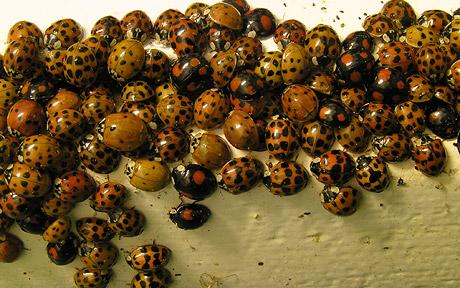
Breeding Habits
The harlequin has settled into its new environment exceptionally well.They breed 5 times a year, unlike the native ladybirds which only breed twice a year, and this has massively contributed to their growth and spread.
Unlike British ladybirds, they do not need a cold winter to mature enough to breed.
They Bite
Every autumn they seek out shelter to hibernate, and they are the only variety of ladybird to invade the inside of peoples' houses, where they cause havoc by staining carpets and furniture with their 'reflex bleeding' which is a normal response ladybirds have to a threatened or perceived attack, which smells extremely unpleasant and is difficult to remove.
They also bite, which can be problematic for people who are allergic to their bites.
They have a habit of forming together in their thousands if not millions, especially in a situation where they are warm and cosy.
There are reports of whole streets virtually carpeted with them!
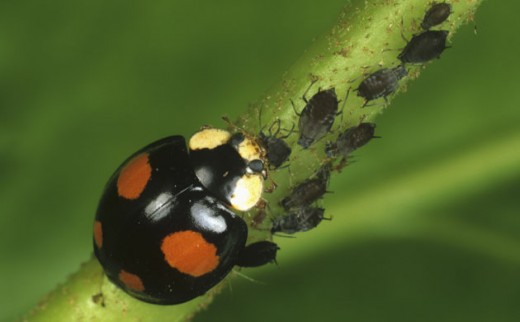
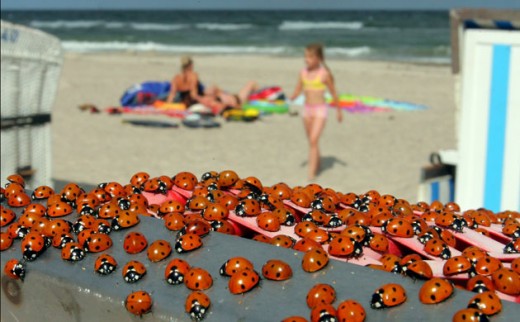
Predators
Their greatest problem in the UK and Europe, they have no known predators. Birds won't eat them because of the foul-smelling secretions they release. Other insects give them a wide berth.
They are free to breed and continue breeding, and being top of their food chain, they are rapidly outnumbering the local species.
They are antisocial as we have seen; humans do not want them in their houses.
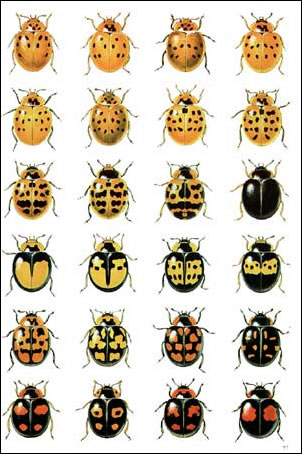
Asia
Over in Asia, where they originally came from, there was no problem with them as obviously they have insects or birds which have been programmed by Mother Nature to keep their numbers under control. Europe and North America obviously lack the same ecological species, but of course introducing something which eats the harlequin would cause problems elsewhere in the food chain, as the natural ecological balance gets upset.
Tracking
Britain has set up online sites for people to report their sightings of the harlequin, with a special emphasis on involving schoolchildren, who love ladybirds.
This has enabled scientists to accurately track and record the spread of these aliens, although they still have not worked out what exactly do to about the problem.
Check out The Harlequin survey.

